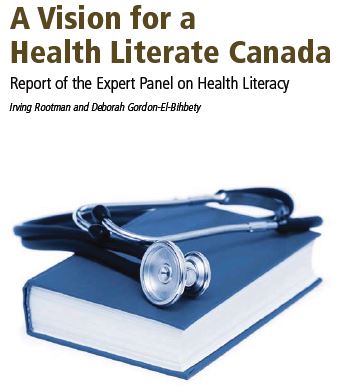It’s been an underlying principle of bioethics – since the Nuremberg Trials – that the informed consent of an individual (or of their community, within certain cultural norms) must usually be secured prior to their participation in clinical or medical research.
In some form or another, modern ethics in health care could hardly function without the notion of consent.”(1)
Not only must an individual consent to participate at the outset of the research process, their continuing consent must be sought; they must be free to withdraw from the project at any time. At times an individual’s exit from a clinical trial will have to be measured, for example when down-titration of a medication is required to protect their health.
And as any clinical trial monitor – or any type of auditor – knows; ‘if it’s not documented it didn’t happen’. So, of course, each individual’s informed – and continued – consent be documented; whether their consent is written, verbal, in sign language, or by other means.
The requirements of informed consent to medical research differ significantly from other types of consent that an individual encounters in daily life. Some examples of non-medical consent include; the release of personal information to an automobile insurance firm or of credit information to a potential landlord, and the ‘click here’ privacy consent required to visit certain websites or to download many APPs or applications onto a mobile phone.
It’s also been argued that the:
rules of informed consent and medical confidentiality are rooted in the more general moral requirements of respecting the autonomy of persons and protecting them from harm. However these rules of consent and confidentiality may not be serviceable of appropriate outside of medicine.”(2)
So when we consider consent informed consent in the context of medical research, we’re discussing concepts fundamentally different from the concept of consent in daily life.
In Canada and the US we’ve generally relied on informed consent forms (ICFs) or documents (ICDs), which the potential research participant is expected to read and understand; preferably with some assistance from a member of the research team. Much of Europe uses a similar paper-based approach, often referred to as informed consent (IC) documents.
But many of us in bioethics have long wondered whether – and to what extent – potential research participants actually understand these ICFs. We know that, in clinical care (non-research) settings, overall health literacy rates are low:
“However, the concept of health literacy was not introduced into healthcare literature until the early 1990s and had not become part of mainstream healthcare literature and practice until the last few years. The advances in healthcare and the push for patient self-management of health have brought increasing attention to the ability or inability of individuals to understand and make informed decisions about their healthcare.”(3)

Here in Canada, a recent “survey tested more than 23,000 Canadians using rigorous methods developed by Statistics Canada in collaboration with international survey organizations. When we finally saw the numbers, we were surprised to learn that more than half of working age adults in Canada (55% or 11.7 million) are estimated to have less than adequate health literacy skills. We were shocked to learn that 88% of adults over the age of 65 (3.1 million) appear to be in this situation.”(4)
Consequently, our suspicion that Canada has a serious health literacy problem has been validated.”(4)
In the US, the National Assessment of Adult Literacy (NAAL) provided some disconcerting and discouraging results: “36% of the adult participants had basic or below basic health literacy skills. This represents more than one third of the population”.(3)
So I’ve been looking forward to seeing the results of a study in France (as I’m based in Montréal, we tend to see a lot of French research being referred to in our university-hospital and clinical research environments). The researchers’ aim was to investigate whether “lexicosyntactic readability can improve comprehension of the written information given to patients participating in biomedical research”.(5)
The publication’s title, however, says it all:
Informed consent document improvement does not increase patients’ comprehension in biomedical research…”(5)
“Both our results and the review of the literature raise the question as to whether it is possible to improve comprehension by working on the IC document. Improving the document does not always work and resorting to a multimedia approach is not necessarily a good tool.
Thus, the only method that may be efficient is the intervention of a third person (from the study team or an independent individual), someone who can spend more time discussing the study information with the participant.
Indeed, it is important to remember that although written information must be given to the participant, it is also given orally by the investigator or their representative. In the present study the written information was not supported by oral information.”(5)
So it seems that we still have much work to do, in order to make the consent process for biomedical research truly “informed”.
References
(1) Veatch, Robert M. Abandoning Informed Consent. In Bioethics: An Anthology. Kuhse, Helga and Peter Singer, Editors. Blackwell, 1999. Pages 523-532.
(2) Beauchamp, Tom L., and James F. Childress. Principles of Biomedical Ethics. Fifth Edition. Oxford University Press: New York. 2001. Page 5.
(3) Cutilli, Carolyn Crane, and Ian M. Bennett. Understanding the Health Literacy of America Results of the National Assessment of Adult Literacy. Orthopaedic nursing / National Association of Orthopaedic Nurses 28.1 (2009): 27–34. Web:
https://www.ncbi.nlm.nih.gov/pmc/articles/PMC2668931/
(4) Canadian Public Health Association (CPHA); Rootman, Irving and Deborah Gordon-El-Bihbety. A Vision for a Health Literate Canada: Report of the Expert Panel on Health Literacy. 2008. Web: https://www.cpha.ca/vision-health-literate-canada-report-expert-panel-health-literacy
(5) Paris, Adeline et al. Informed Consent Document Improvement Does Not Increase Patients’ Comprehension in Biomedical Research. British Journal of Clinical Pharmacology. 69.3 (2010): 231–237. Web:
https://www.ncbi.nlm.nih.gov/pmc/articles/PMC2829692/
